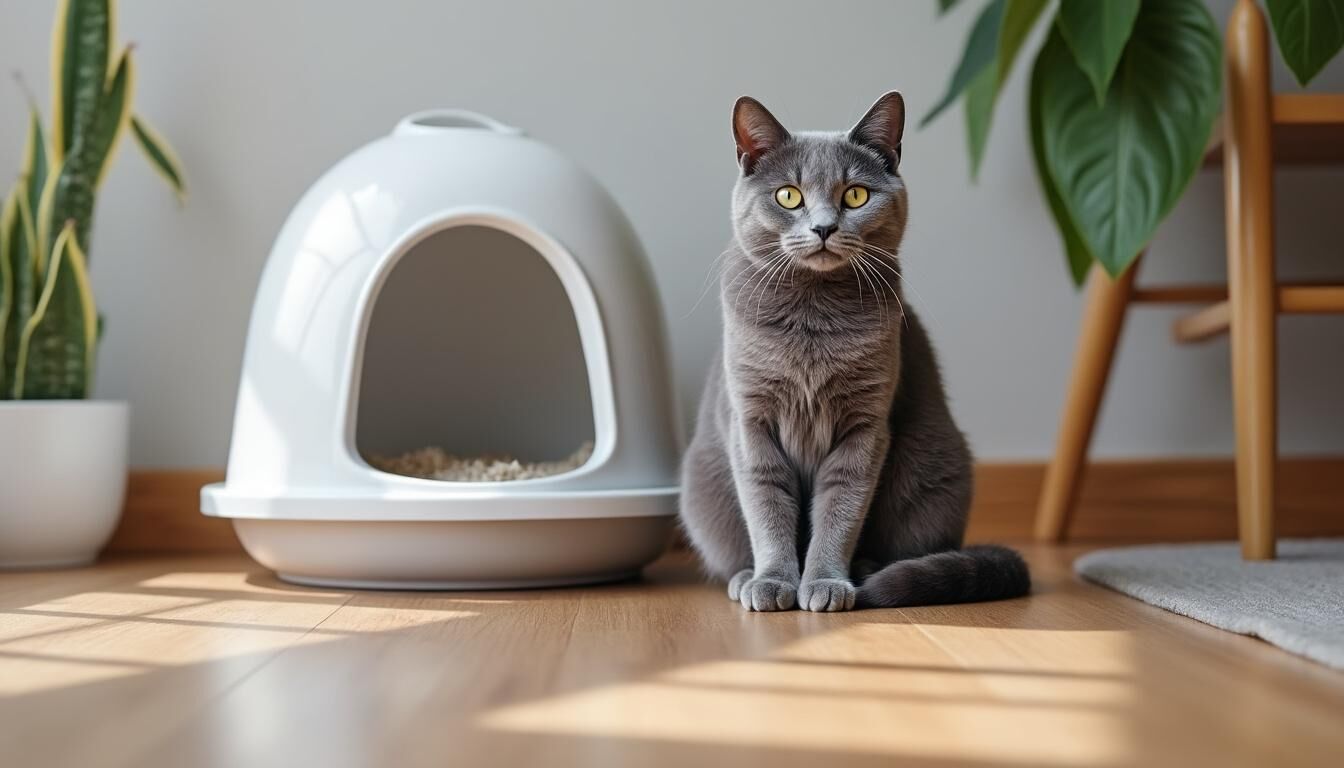One of the most frequent concerns among cat owners is the persistent and strong smell of urine from intact male cats, especially before and after neutering. This odor is rooted deep in the biology of male cats, connected to their hormonal profile and territorial behavior. Neutering, a common veterinary procedure, plays a pivotal role in altering this scent, yet the transition is gradual and varies widely among individuals. Understanding the biological underpinnings and timeline for odor reduction can empower cat owners to better manage expectations and care practices. The urine odor often signals powerful testosterone levels driving musky scents linked to territorial marking via spraying and urine deposits. After neutering, these scents are expected to diminish as testosterone dwindles, but the process can span weeks to months, influenced by a multitude of factors including diet, hydration, stress, and health status. For many owners, maintaining a clean litter box along with environmental adjustments is critical to mitigating lingering urine odor during this transitional phase. Veterinarians consistently emphasize patience and vigilance for signs of urinary tract issues while acknowledging that neutering positively impacts behavior and long-term odor control, but doesn’t entirely eliminate all urine-related challenges.
Understanding Why Male Cat Urine Smells So Strong Before Neutering
Testosterone’s Role in Musky Cat Urine Odor
The distinctive and strong urine odor in intact male cats is primarily driven by testosterone, the hormone responsible for many masculine traits and behaviors. Testosterone influences glands located around the urinary tract that secrete pheromones, which mix with the urine to create a characteristic musky and potent scent. This odor acts as a biological signal, communicating dominance, reproductive status, and territorial claims to other cats. The presence of such scent glands and the elevated testosterone level in male cats results in a concentrated and often unpleasant urine odor that can be troubling for cat owners.
Biologically, testosterone induces the production of sulfur-containing compounds and other odoriferous molecules that heighten the urine’s pungency. Research published in veterinary journals highlights that these chemical compounds are less concentrated when testosterone declines, directly linking hormone levels with the intensity of urine scent. This is why intact males frequently produce a strong smell in their urine which is not commonly seen in neutered cats.
🐱 Testosterone enhances pheromone secretion from scent glands.
🐱 Pheromones mixed with urine increase musky odor intensity.
🐱 Sulfur compounds in urine are produced under testosterone regulation.
🐱 Intact males have higher urine concentration of these odor molecules.
How Intact Male Cats Mark Territory with Potent Scent
Spraying is a classic behavior exhibited by intact male cats to mark territory and attract mates. Urine used in this way contains a complex cocktail of chemical signals influenced by testosterone, designed to linger and be unmistakably identifiable by other felines.
This territorial marking is often repeated several times daily, with urine sprayed on vertical surfaces like walls and furniture, which can intensify odor perception within the home environment. Since the urine contains pheromones and hormonal residues, the scent becomes deeply embedded and resistant to casual cleaning. This behavior is not merely a nuisance; it’s a biologically driven communication method rooted in feline instinct.
🐾 Spraying deposits urine laced with testosterone-influenced pheromones.
🐾 Repeated marking maintains territorial boundaries.
🐾 Urine sprayed on vertical surfaces tends to linger longer.
🐾 Owners may notice stronger odor near favorite marking spots.
Behavior | Purpose | Impact on Urine Odor |
|---|---|---|
Spraying | Territorial marking | Strong, musky scent boosted by testosterone 🐾 |
Elimination | Waste removal | Typical urine odor, less intense |
What Changes to Expect After Neutering Your Cat
The surgical removal of testicles during neutering leads to a sharp decline in testosterone production, drastically reducing the secretion of musky pheromones. Consequently, the urine odor from neutered male cats becomes significantly less intense over time.
However, it’s important to note that the biological clearance of hormones doesn’t happen instantly. Residual testosterone and its metabolites may continue to influence urine scent for weeks after the procedure. Behavioral changes such as decreased spraying typically accompany hormonal shifts, but some cats may maintain marking habits for a time due to established behavior patterns.
⚖️ Testosterone levels drop significantly post-surgery.
⚖️ Urine production of odoriferous pheromones decreases gradually.
⚖️ Behavioral reduction in spraying and marking is common.
⚖️ Initial weeks may still show residual strong urine odor.
How Neutering Affects Cat Urine Smell: The Biological Timeline Explained
Hormone Clearance and Gradual Reduction of Urine Odor
The reduction in urine odor after neutering is a progressive biological process as the body gradually clears testosterone and associated chemical messengers. Since hormone levels do not plummet immediately, cat owners should expect a phased improvement rather than an instant difference.
Studies show that within 2 to 4 weeks post-neutering, most male cats display a decline in the strength of their urine odor, with further reductions continuing out to approximately 8 weeks. This timeline mirrors the metabolic turnover of hormone-related compounds affecting urine composition.
🔄 Hormones metabolize over several weeks post-surgery.
🔄 Odoriferous compounds decrease steadily in urine.
🔄 Behavioral changes reduce spraying and marking frequency.
🔄 Complete normalization of urine smell can take months in some cats.
Time Since Neutering | Hormone Level Status | Expected Urine Odor Intensity |
|---|---|---|
0-2 weeks | High residual testosterone | Strong odor still present ⚠️ |
2-8 weeks | Declining hormone levels | Noticeable reduction in odor 👃 |
8 weeks to 3 months | Low to minimal testosterone | Generally weak or absent musky urine smell ✅ |
Why Some Cats’ Urine Smell Lingers Longer Post-Surgery
About 10% of neutered males may continue to exhibit residual spraying or produce urine with a notable odor. Factors influencing this persistence include individual metabolic rates, incomplete reduction of testosterone in some cases, and established behavioral habits that are slow to extinguish.
Additionally, if the cat’s environment or health is compromised—such as stress or urinary illnesses—the persistence of urine odor can be exacerbated. Veterinarians often caution that patience and monitoring are essential as residual hormonal effects and behaviors fade at different rates in each kitty.
🐾 Individual differences in hormone metabolism.
🐾 Persistent instinctual marking behaviors.
🐾 Environmental stress can elevate urine concentration.
🐾 Underlying health issues may amplify odor.
Expert Insights on Post-Neuter Scent Changes and Patience
Veterinary experts emphasize that neutering is only the first step towards reducing the difficult-to-manage urine odor commonly associated with intact male cats. As hormone levels stabilize, the decrease in scent becomes clearer, but the timeline is not uniform.
Experienced veterinarians and behaviorists recommend a monitoring period of at least 2-3 months before assessing the full impact on urine smell and marking behavior. During this time, owners are advised to maintain strict litter box hygiene and manage environmental stressors to support the reduction of odor and facilitate behavioral adjustments.
⏳ Expect gradual improvement, not immediate odor disappearance.
⏳ Maintain thorough cleaning routines to support scent fading.
⏳ Consult veterinarians if urine odor persists with unusual symptoms.
⏳ Use behavioral interventions to reduce residual spraying.
When Does Cat Urine Smell Improve After Neutering? Typical Recovery Periods
Average Timelines: From Immediate to Several Months
While some male cats may begin showing a decreased urine odor within a fortnight of neutering, many require a longer period of 2 to 3 months for the smell to substantially diminish or disappear altogether. The broad variability depends on factors such as individual metabolism, age, and temperament.
Veterinary clinical observations confirm that the majority of neutered cats will have a marked reduction in urine smell between 4 and 8 weeks post-operation, aligning with the pace of testosterone clearance and behavior modification.
2 weeks: Minor reduction, hormone clearance begins.
4-8 weeks: Majority of cats show noticeable odor reduction.
Up to 3 months: Complete or near-complete disappearance of musky urine smell.
Over 3 months: Possible residual odor due to other factors.
Case Examples of Odor Reduction in Neutered Male Cats
Owner reports and clinical records provide useful benchmarks:
Case A: A 1-year-old male cat’s strong urine odor reduced to faint within 3 weeks post-neutering.
Case B: A 5-year-old male with prolonged spraying showed full odor reduction by 10 weeks.
Case C: An older neutered cat continued to have mild urine odor due to concurrent kidney issues.
These cases affirm the typical timeline but also highlight health’s influence on urine odor persistence.
How Residual Spraying and Marking Impact Ongoing Smell
Residual urine deposits from persistent spraying or marking, even after neutering, can result in ongoing odor issues. These deposits become a source of strong smell independent of any new hormone influence and often require thorough cleaning or enzymatic treatments to eliminate.
Continued urine spraying in neutered cats, although less frequent and less intense, can maintain odor concerns. Behavior modification and environmental enrichment may be required alongside physical cleaning strategies.
🧴 Use enzymatic cleaners to break down urine odor residues.
🧴 Increase litter box accessibility and cleanliness.
🧴 Introduce distractions or pheromone diffusers to reduce spraying.
🧴 Monitor any new spray marks regularly.
Factors Besides Neutering That Influence Cat Urine Odor
Diet, Hydration, and Age Effects on Urine Concentration
Beyond hormonal influences, the diet, hydration status, and age of the cat significantly impact urine composition and odor intensity. High protein diets, especially those rich in chicken or fish, tend to produce more intense-smelling urine. Conversely, proper hydration dilutes urine and reduces pungency.
Older cats may experience kidney function decline, resulting in more concentrated and odorous urine. Careful attention to a cat’s diet and water intake post-neutering supports urinary health and odor management.
🥩 High protein (diet) can increase urine odor.
💧 Increased hydration dilutes urine and reduces smell.
🍽️ Specialized diet for neutered cats can optimize urinary health.
🎂 Age-related kidney changes can intensify urine odor.
Health Conditions That Can Intensify Cat Urine Smell
Urinary tract infections (UTIs), kidney disease, and bladder inflammation often cause a strong, foul urine odor independent of neutering status. Affected cats may also show behavioral changes such as frequent urination or straining. This is a critical differential diagnosis for lingering or worsening odor post-neutering.
Veterinarians recommend prompt evaluation to rule out infection or disease, particularly if odor intensifies or is coupled with symptoms like blood in urine.
🩺 Urinary tract infections cause foul-smelling urine.
🩺 Kidney or bladder disorders can alter urine composition.
🩺 Diagnostic testing is necessary if odor persists or worsens.
🩺 Treatment resolves health-related odor issues.
Stress and Urinary Habits: What Owners Should Watch For
Stress and anxiety influence urinary habits and can exacerbate urine odor through increased frequency and concentration. Behavioral stress triggers more frequent urination, and incomplete emptying may boost bacterial growth and odor intensity.
Maintaining a low-stress environment post-neutering is crucial to promoting healthy urinary function and minimizing olfactory issues. Causes of stress include environment changes, new pets, and inconsistent litter box maintenance.
😿 Stress increases urination frequency and odor intensity.
😿 Environmental stability reduces behavioral urinary issues.
😿 Regular litter box cleaning is essential for comfort.
😿 Monitoring behavior helps identify stress-related problems early.
Odor Management Strategies for Cat Owners Post-Neutering
Litter Box Cleanliness to Reduce Lingering Urine Scents
The litter box plays a central role in perceived urine odor. Even after successful neutering and hormonal reduction, residual urine deposits on surfaces and in litter can perpetuate unpleasant smells.
Using high-absorbency litter, scooping multiple times daily, and regular full litter changes are recommended. Periodic washing of litter boxes with mild enzymatic cleaners effectively eliminates urease-producing bacteria responsible for stubborn odors.
🧹 Scoop litter box at least twice daily.
🧹 Full litter replacement weekly or biweekly.
🧹 Wash boxes with enzymatic cleaners monthly.
🧹 Use covered or high-sided boxes to contain odors.
Environmental Adjustments and Odor-Neutralizing Products
Additional environmental modifications can aid in odor control. Pheromone diffusers, air purifiers, and odor-neutralizing sprays are useful adjuncts to prevent unpleasant smells from lingering in the living space.
Encouraging the cat to frequent areas with easily cleaned surfaces reduces contamination risk. Placing multiple litter boxes in calm, private locations also supports consistent elimination habits.
🌿 Use feline pheromone diffusers to support calm behavior.
🌿 Install an air purifier for odor filtration.
🌿 Deploy odor-neutralizing sprays safe for pets.
🌿 Optimize litter box locations for privacy and convenience.
Practical Tips: Fresh Water, Right Food, Low-Stress Space
Maintaining optimal hydration by fresh water availability is key to diluting urine and mitigating odor. Choosing a balanced diet formulated for neutered cats reduces excessive protein metabolites that intensify smell. A calm, low-stress environment facilitates normalized urinary behavior and prevents relapse of territorial markings.
💧 Provide constant access to fresh water.
🥣 Feed specialized wet or dry diet for neutered cats.
😺 Create quiet, stress-reduced living spaces.
💤 Ensure routine and animal enrichment to reduce anxiety.
Warning Signs and When to Seek Veterinary Care for Cat Urine Odor
Identifying Symptoms of Urinary Tract Infections or Medical Issues
Cat owners should remain vigilant for signs indicating possible urinary tract infections or other medical causes of strong urine odor. Warning signs include visible blood in urine, frequent or painful urination, inappropriate elimination outside the litter box, and a sudden worsening of urine scent.
Early veterinary intervention can prevent complications such as bladder stones or chronic kidney disease, important conditions that exacerbate urine odor.
🔴 Blood in urine or unusual color.
🔴 Vocalization or pain during urination.
🔴 Increased frequency or difficulty urinating.
🔴 Strong, foul urine odor persisting beyond typical recovery.
Temporary Post-Surgery Changes vs. Signs of Complications
Some temporary urinary behavior changes are expected immediately after neutering: slight straining, increased frequency, or minor discomfort. These typically resolve within days to weeks and are part of normal healing.
Conversely, longer-lasting or severe symptoms warrant rapid veterinary assessment. Persistently strong or foul-smelling urine that does not improve suggests infection or other medical issues beyond hormonal effects.
⏳ Normal: Mild, temporary urination changes 1-2 weeks post-surgery.
⏳ Abnormal: Persistent or worsening symptoms past 3 weeks.
⏳ Action: Immediate veterinary consultation if complications suspected.
Veterinarian-Approved Solutions for Persistent Strong Odor
If strong urine odor persists after appropriate recovery from neutering, veterinarians may recommend:
💊 Antibiotic or anti-inflammatory treatments for infections.
💊 Urinary tract supportive diets or supplements.
💊 Behavioral therapy for persistent spraying.
💊 Regular health check-ups to monitor kidney or bladder health.
The Broader Benefits of Neutering: Beyond Controlling Cat Urine Smell
Reduction in Spraying, Roaming, and Behavioral Issues
Neutering significantly reduces spraying behavior, territorial aggression, and unwanted roaming in male cats. These behavioral improvements not only diminish household urine odors but also enhance the cat’s safety and overall quality of life.
🐾 Reduced territorial marking and lessened urine odor.
🐾 Decreased aggression and stress-promoting behaviors.
🐾 Lower propensity to roam, reducing injury risks.
🐾 Easier management for cat owners, improved pet-owner relationship.
Improved Health and Longevity for Neutered Male Cats
Removing the testicles eliminates risks of testicular cancer and reduces prostate issues, contributing to longer and healthier lives. This improvement in overall health status indirectly supports better urinary function and less problematic urine odors over time.
❤️ Lower risk of reproductive cancers.
❤️ Better prostate health and fewer urinary complications.
❤️ Longer lifespan due to decreased risks of trauma and disease.
❤️ Enhanced well-being through hormonal balance.
Empowering Responsible Cat Ownership and Community Health
Beyond individual pet benefits, widespread neutering helps control stray populations, reducing environmental stressors and territorial competition that lead to spraying and associated odors in urban settings. Responsible pet ownership through neutering supports healthier communities and a better quality of life for domestic and feral cats alike.
🌍 Controls unwanted litters, reducing stray populations.
🌍 Diminishes spraying-related neighborhood complaints.
🌍 Enhances community animal welfare.
🌍 Supports responsible, sustainable pet care practices.

Frequently Asked Questions
Q: How long does it take for a cat’s urine smell to improve after neutering?
A: Most cats show a noticeable reduction in urine odor within 2 to 8 weeks, but some may take up to 3 months for the scent to fully diminish.Q: Why does my neutered male cat still spray and produce strong urine odor?
A: About 10% of neutered males continue to spray due to behavioral habits or residual hormones. Environmental stress or health issues can also contribute.Q: Can diet influence how strong my cat’s urine smells?
A: Yes, high protein diets, especially those rich in chicken or fish, can increase urine odor, while proper hydration dilutes urine and lessens smell.Q: When should I see a veterinarian about a strong urine smell post-neutering?
A: If the odor persists beyond 2-3 months, intensifies, or is accompanied by symptoms like painful urination or blood, veterinary evaluation is necessary.Q: What can I do at home to reduce urine odor after neutering?
A: Frequent litter box cleaning, providing fresh water, feeding a balanced diet, reducing stress, and environmental odor neutralizers are effective strategies.

